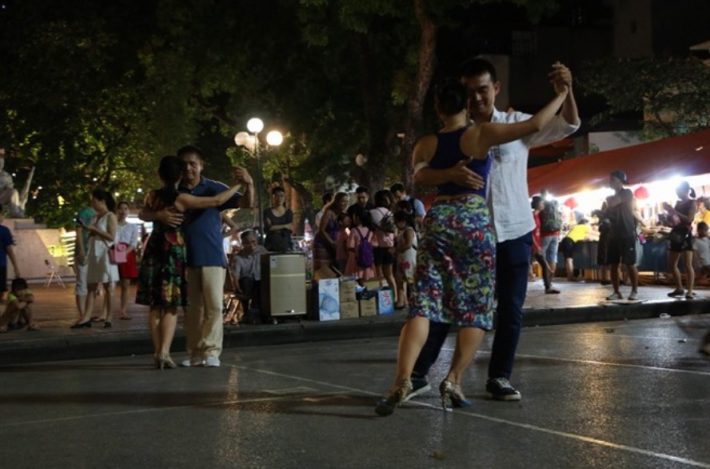Upon hearing ‘Vietnam’ it is the war that comes immediately to mind, but I’ve come to the understanding that this is not what Vietnam is all about. There is an aspect of elegance in the country which all too often goes amiss. This aspect being one I would like to learn about on the virtual field trip. Whilst researching Vietnam, I was able to realise its beauty through seeing its traditions and generally getting to know more about the country.
In researching food in Vietnam, I found out that rice is very popular and that the common practice is to prepare several dishes that are placed on a tray or table that people sit around. Rice is an integral part of life in Vietnam and eight out of ten Vietnamese living in rural areas make their living by growing rice. Along with popular rice dishes, other popular dishes consist of sauteed vegetables, tofu, a seafood-based broth with vegetables call ‘canh’ and a variety of pork, fish, or meat dishes. Although major cities in Vietnam offer Vietnamese and other international cuisines, most Vietnamese who have food outside of their homes will consume food by street-side stalls or small shops that often specialise in one dish. The most popular dish to eat outside of homes is a noodle soup with a clear meat-based broth called ‘pho’ and this is considered the national dish by many.
However, there is much more to Vietnam than their cuisine. There are fundamental social beliefs. Family is very important to Vietnamese people. Both family and clan are valued over the individual. Clan is the most important social unit in the country and each clan features a patriarch leading the clan and a clan altar. It is not unusual to see three to four generations of a family living together as this is part of familial customs. It is often known in Vietnam that the authority of the household is given to the man in the house or the father and that as a ‘head of household’ he is the breadwinner for the family and has the final decisions on all matters. Traditionally, Vietnamese people believe that if a family had no son to carry on the role of the father after he died, was superstitiously thought to have disappeared forever. Staying close to family in Vietnam is very important and even after the passing of family members, they worship their ancestors. Incense sticks are burnt and offerings such as fruit, sweets and gifts are made in respect for their ancestors and ‘ghost money’ is burnt so that the spirits of the gifts can ascend to heaven for the ancestors to use.
Conclusively, the virtual field trip has enabled me to gain a greater appreciation for the unique cultural dynamics present in Vietnam. I remain grateful that we have the opportunity to ask Vietnamese students questions about their beautiful country!
Tania Sharif, Year 1, BA (Hons) Politics and International Relations.
